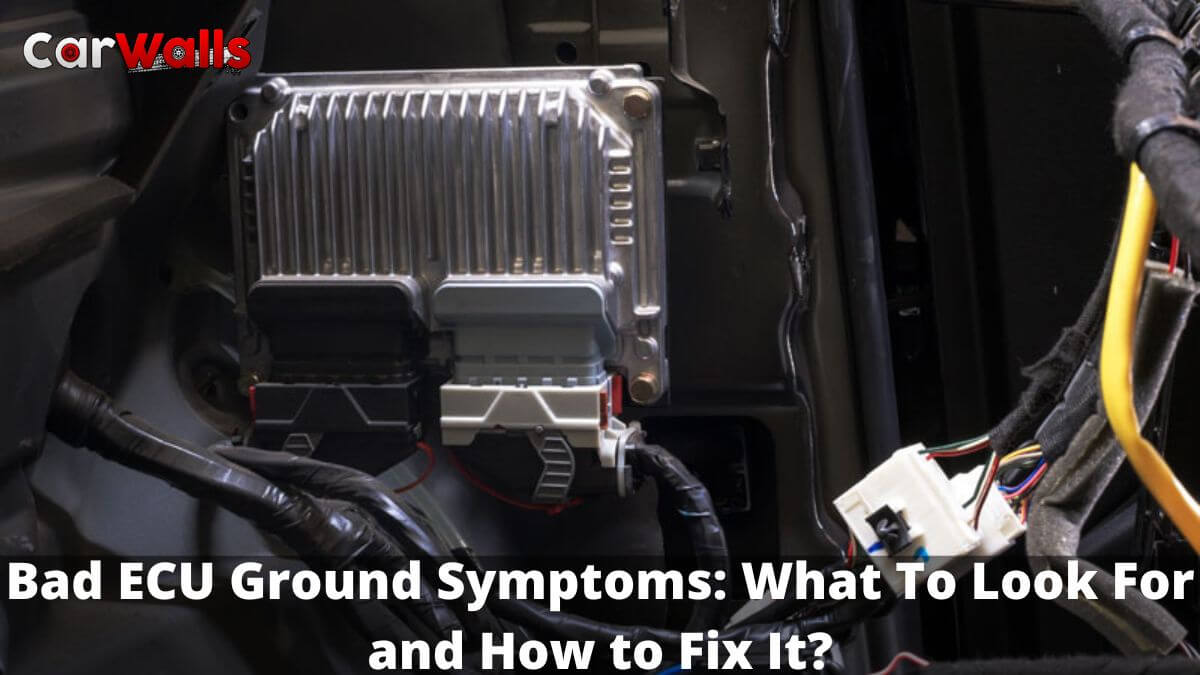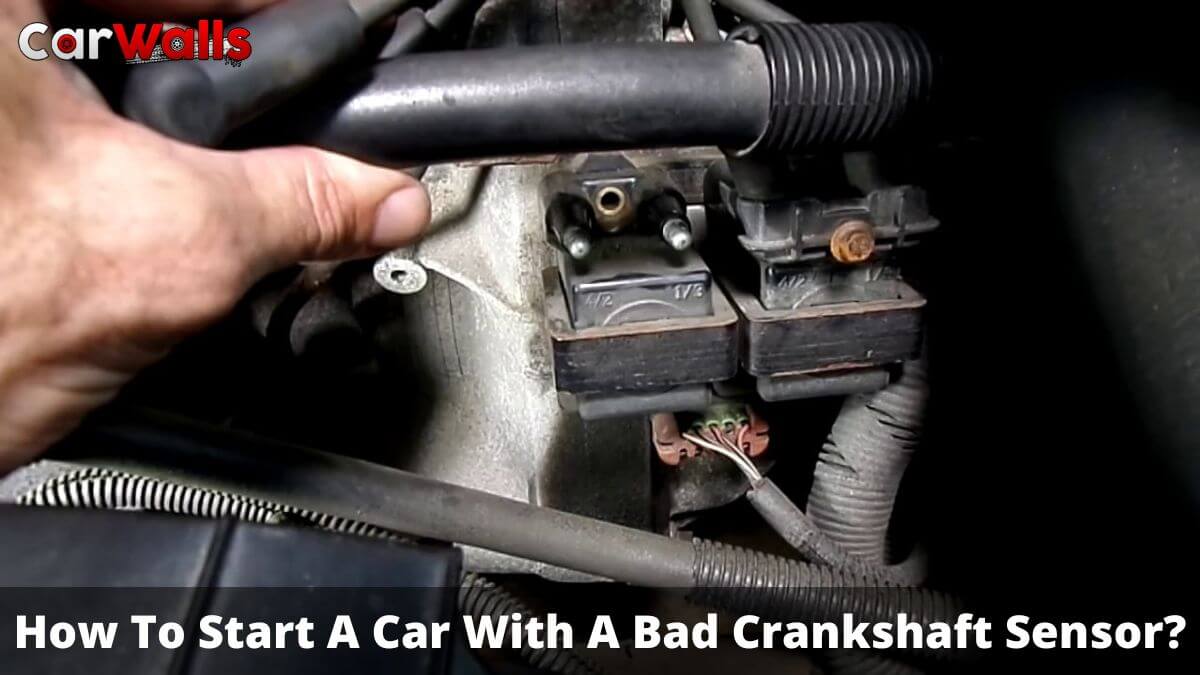What are the bad ecu ground symptoms? Are you having problems with your engine performance, weird starts, or just a general “not right” feeling? Chances are good that you have a bad ground connection. Read on to find out more about bad ground symptoms and how to fix them. Quick tips and tricks are included to look for bad ecu ground symptoms.
What Is A Ground Wire And What Does It Do In A Car’s Electrical System?

A ground wire is a wire that provides an electrical connection between a vehicle’s chassis and its electrical system. This wire helps protect the driver and passengers in the event of an electrical fault, as it ensures that any current that escapes from the system will travel through the ground instead of through the car’s metal frame. In most cases, the ground wire will be attached to the car’s engine block or frame, as these parts of the vehicle are typically made of metal. The ground wire helps to dissipate any electrical current that may build up in the system, and it also helps to protect the electronics from damage caused by static electricity.
Bad Ecu Ground Symptoms

A bad ground wire can cause all sorts of problems with your car. Symptoms of a bad ground wire can include poor performance, engine misfiring, and even electrical fires. If you think you might have a bad ground wire, be sure to take your car to a mechanic as soon as possible for inspection.
There are a few ways to tell if you might have a bad ground wire: –
- One symptom is if your car’s performance suddenly decreases. If your engine starts misfiring or sputtering, it could be due to a bad ground wire.
- Another symptom is if your car’s electrical system starts acting up. If your lights flicker or dim unexpectedly, it could be a sign that your ground wire is not functioning properly.
If you notice any of these symptoms, it’s important to take your car to a mechanic as soon as possible. A bad ground wire can cause serious damage to your car if it’s not fixed promptly. Your mechanic will be able to test your ground wire and make sure it’s in good working condition. If it is indeed damaged, they’ll be able to replace it with a new one. Don’t delay in getting your car checked out if you think there might be a problem with the ground wire – it’s better to be safe than sorry!
How To Test For A Bad Ground Wire?

Oftentimes, when an electronic device isn’t working, the problem can be traced back to a bad ground wire. Luckily, testing for a bad ground wire is a simple process that can be done with just a few household items.
First, you’ll need a multimeter. Set the multimeter to the Ohms setting and touch one of the probes to the ground wire. Touch the other probe to a bare metal surface on the device. If the multimeter registers a reading, that means the ground wire is good. If there is no reading, that means the ground wire is bad and needs to be replaced.
Once you’ve determined that the ground wire is bad, replace it with a new one. Make sure to use insulated wire so that there is no risk of shock. Once the new wire is in place, test it again with the multimeter to make sure it is working properly.
If you’re having trouble finding a bad ground wire, try testing all of the wires one by one. Once you find the bad ground wire, replace it and your device should start working again.
Testing for a bad ground wire is a simple process that can be done with just a few household items. By following these steps, you can fix many common electronic problems.
How To Fix A Bad Ground Wire?
A bad ground wire can be caused by many different things, such as corrosion, a break in the wire, or a loose connection. If you’re having problems with your electrical system, one of the first things you should check is the ground wire. Here are some tips on how to fix a bad ground wire.
- If you suspect that your ground wire is the problem, the first thing you should do is check the connection to the battery. Make sure the terminal is clean and tight. If it’s loose, tighten it with a wrench. If the terminal is corroded, you can try cleaning it with a wire brush or sandpaper. If the corrosion is severe, you may need to replace the terminal.
- Next, check the connection at the engine block. This is usually a large bolt that goes through a strap or bracket. The nut should be tight and the connection should be clean. If there’s any corrosion, clean it off with a wire brush or sandpaper.
- If your ground wire is still not working properly, you may need to replace it. You can buy replacement ground wires at most auto parts stores. Be sure to get the right size wire for your vehicle. Also, be sure to disconnect the battery before you begin working on the electrical system.
Follow these tips and you should be able to fix a bad ground wire in no time. If you’re still having problems, take your vehicle to a qualified mechanic or auto electrician. They can diagnose and repair the problem quickly and correctly.
Prevention Tips For Keeping Your Ground Wire In Good Condition

Ground wires are important for keeping our homes and appliances safe from electrical surges. But what happens when they start to wear down? Here are some tips for preventing ground wire failure and keeping your home and family safe.
- Check your ground wires regularly for signs of wear and tear, such as fraying or cracks.
- If you notice any damage, replace the ground wire immediately.
- Never use electrical tape to repair damaged ground wires, as this can create a fire hazard.
- Make sure all appliances and electronics in your home are properly grounded.
- If you live in an area prone to severe weather, consider installing a whole-house surge protector to help prevent damage to your ground wires.
By following these simple tips, you can help keep your ground wires in good condition and prevent electrical surges from damaging your home and appliances.
Frequently Asked Questions
What is the best way to test my ECU components?
Find out which pins on the ECU connector correspond to the component. Connect the leads and set the multimeter to ohms (resistance mode). Make sure the reading falls within the expected range.
When an ECU fails, what happens?
Automatic transmissions can be affected by a damaged ECU, causing problems shifting gears or sudden jerking or stopping.
Also Read: How To Check Freon Levels In Your Car: A Step-by-Step Guide
Conclusion
In conclusion, if you are experiencing any of the symptoms mentioned earlier, it is best to have your ECU checked by a professional. They will be able to diagnose the problem and recommend a solution. Hopefully, after reading this article, you have a better understanding of what are bad ecu ground symptoms and how they can affect your car. Stay safe on the road!


![What Does Boost Mean In Cars? [Briefly Explained] What Does Boost Mean In Cars?](https://carwalls.org/wp-content/uploads/2022/06/What-Does-Boost-Mean-In-Cars-1.jpg)




